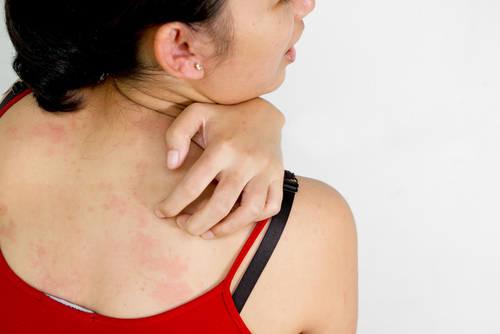Cardiovascular diseases have affected millions worldwide, and have assumed proportions of a world wide epidemic. This conspicuous rise in cardiovascular diseases has also meant world wide significant increase in health spends towards remedial treamtmen imposing a notable economic burden upon society. High blood pressure (Hypertension) is an associated risk factor for cardiovascular disease since the last decade. The worldwide occurrence of hypertension is more than 1 billion whereas more than 7.1 million deaths may be accredited to hypertension annually.
Detailing hypertension and its causes
The force exerted by the blood on the blood vessels is called blood pressure (BP), and an increase in blood pressure is known as hypertension. High blood pressure is an open invitation to various health problems as diabetes, heart problems, and several other critical health issues. Some of the major risk factors are mentioned below:
• Smoking
• Being overweight or obese
• Physical inactivity
• High salty diet
• High intake of alcohol (more than 1 to 2 drinks per day)
• Stress
• Older age
• Genetics
• Chronic kidney disease
• Adrenal and thyroid disorders
Also read: Tackling High Blood Pressure
Hypertension is of mainly two types – primary hypertension, also known as essential hypertension, and secondary hypertension. In the former, there is no underlying reason for hypertension and people may or may not experience any signs and symptoms. Though the exact reason for the essential hypertension is yet to be determined, the the risk factors mentioned above are linked to essential hypertension. Secondary hypertension has an identified reason behind it. Kidney diseases, adrenal gland abnormalities, and thyroid diseases are the factors that cause secondary hypertension.
Symptoms of High Blood Pressure:
High blood pressure is a condition that produces bare minimum signs and symptoms. Approximately a third of all individuals who have high blood pressure don’t even know it. The only way to know high blood pressure is through regular checkups. Some of the signs and symptoms are:
• Severe headache
• Irregular heartbeat
• Blood in the urine
• Pounding in your chest, neck, or ears
• Fatigue or confusion
• Vision problems
• Difficulty in breathing
If you detect any of the above symptoms, contact your physician without losing time as untreated hypertension may result in serious health problems like stroke, heart disease, kidney failure and eye problems.
Also read: Hypertension: Are you at risk?
How to control high blood pressure?
High blood pressure can be controlled by medication, diet and proper exercise. Some remedies for high blood pressure treatment the natural way are given here:
1. Exercise regularly – Regular physical activity can lower the high blood pressure levels within just a few weeks. Patients with hypertension can reduce high blood pressure by almost 8 mm Hg to 6 mm Hg with a brisk walk for thirty minutes daily. The exercise helps the heart to use oxygen more efficiently; this decreases the workload on the heart and control high blood pressure levels.
2. Eat a healthy diet- A diet that is rich in fruits, vegetables, and low-fat dairy products helps reduce high blood pressure. DASH (Dietary approach to stop hypertension) is a recommended diet plan for people with hypertension.
•Potassium-rich fruits and vegetables like peas, cantaloupe, tomatoes, orange juice, potatoes, bananas, kidney beans honeydew melon, and dried fruits like prunes and raisins help in lowering blood pressure.
• Soy or milk protein bring down systolic blood pressure.
• In a study by Tufts University, it was found that participants who sipped 3 cups of hibiscus tea daily reduced their systolic blood pressure by 7 points in 6 weeks on an average.
• Restrict salt intake in your diet. Use herbs or spices to add flavor in place of salt.
•Some herbs have a significant role in lowering blood pressure like Basil, Cinnamon, Cardamom, Garlic, Hawthorn, Celery Seed, French Lavender, Cat’s Claw. Foods with medicinal properties that may help reduce high blood pressure include water chestnut, Chinese celery, hawthorn berries, turnip, honey and mung beans. Stay away from processed food.
3. Seek help for your snoring- If your partner complains about your snoring, do not ignore that as snoring is among the primary symptoms of obstructive sleep apnea. Poeple with sleep apnea have a higher level of aldosterone, a hormone that can boost blood pressure. It is advisable to seek proper treatment of sleep apnea that also keeps the blood pressure levels low.
4. Avoid stress- Take adequate rest and stay relaxed and calm as these can temporarily increase blood pressure.Yoga and meditation can help to lower stress levels.
5. Desist from using tobacco products- Chemicals in cigarettes and tobacco have deleterious effects on our heart blood vessels that can impede their functioning and can cause them harm.
6. Drink alcohol in moderation- Various studies reveal that small amounts of alcohol consumption lower the elevated blood pressure and increases HDL, the good fat of the body. Alcohol in excess increases the blood pressure and triglycerides.
7. Medicinal Treatment- Various medicines like; Captopril, Amlodipine, Furosemide, Losartan, and Propranolol are available on the market for the treatment of hypertension, but are not over the counter drugs and need a physician’s prescription.
Also read: How to Maintain a Healthy Heart?
Final words:
Hypertension is an invisible killer that can cause serious health problems and is among the major risk factors for cardiovascular problems. It is advisable that moment you are diagnosed with high levels of blood pressure, that you immediately reach for a solution. A healthy diet and exercise helps a lot in decreasing blood pressure levels. A little consciousness on your part about your health keeps you fit.
Remain stress-free and safeguard your heart.





